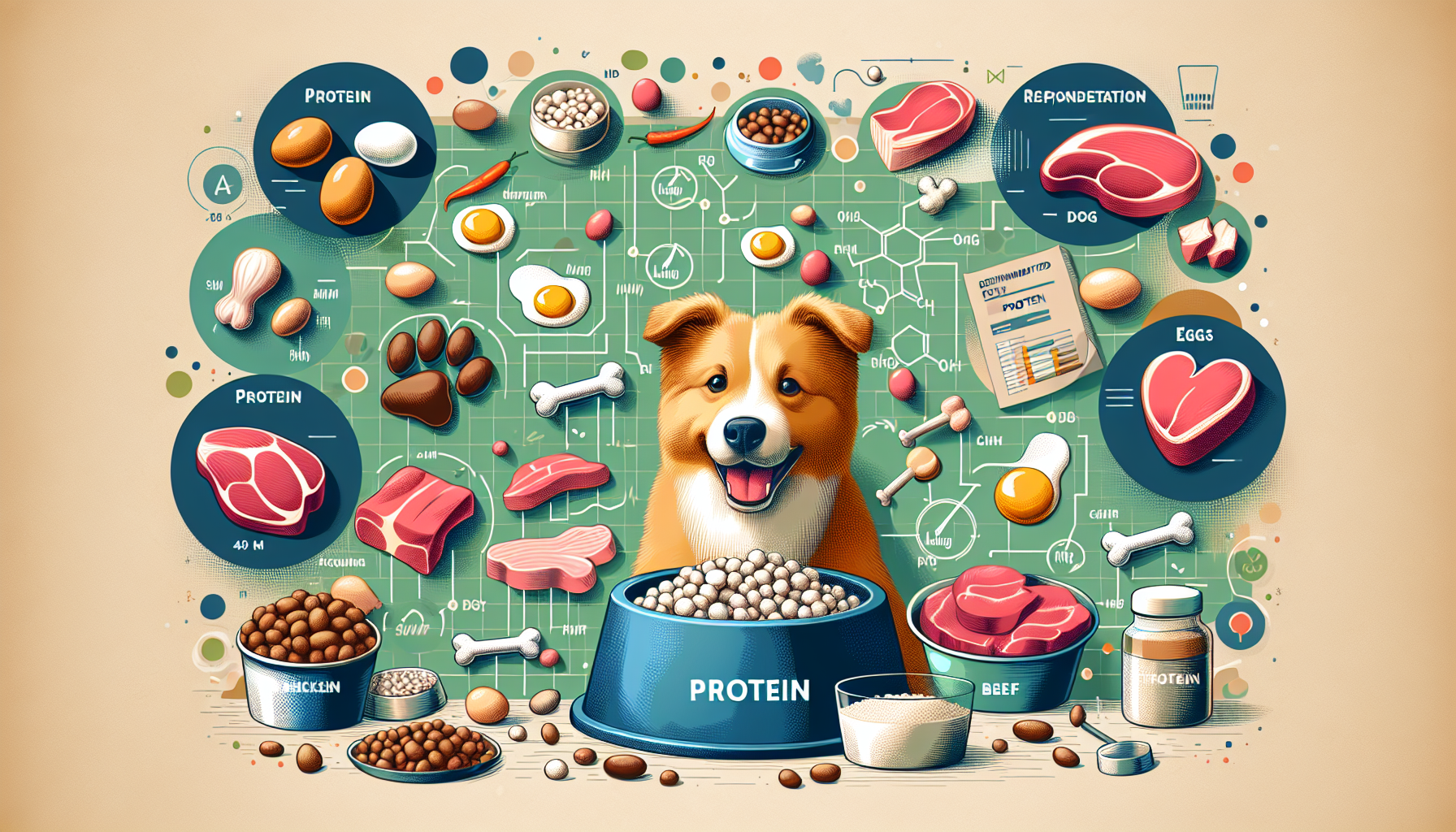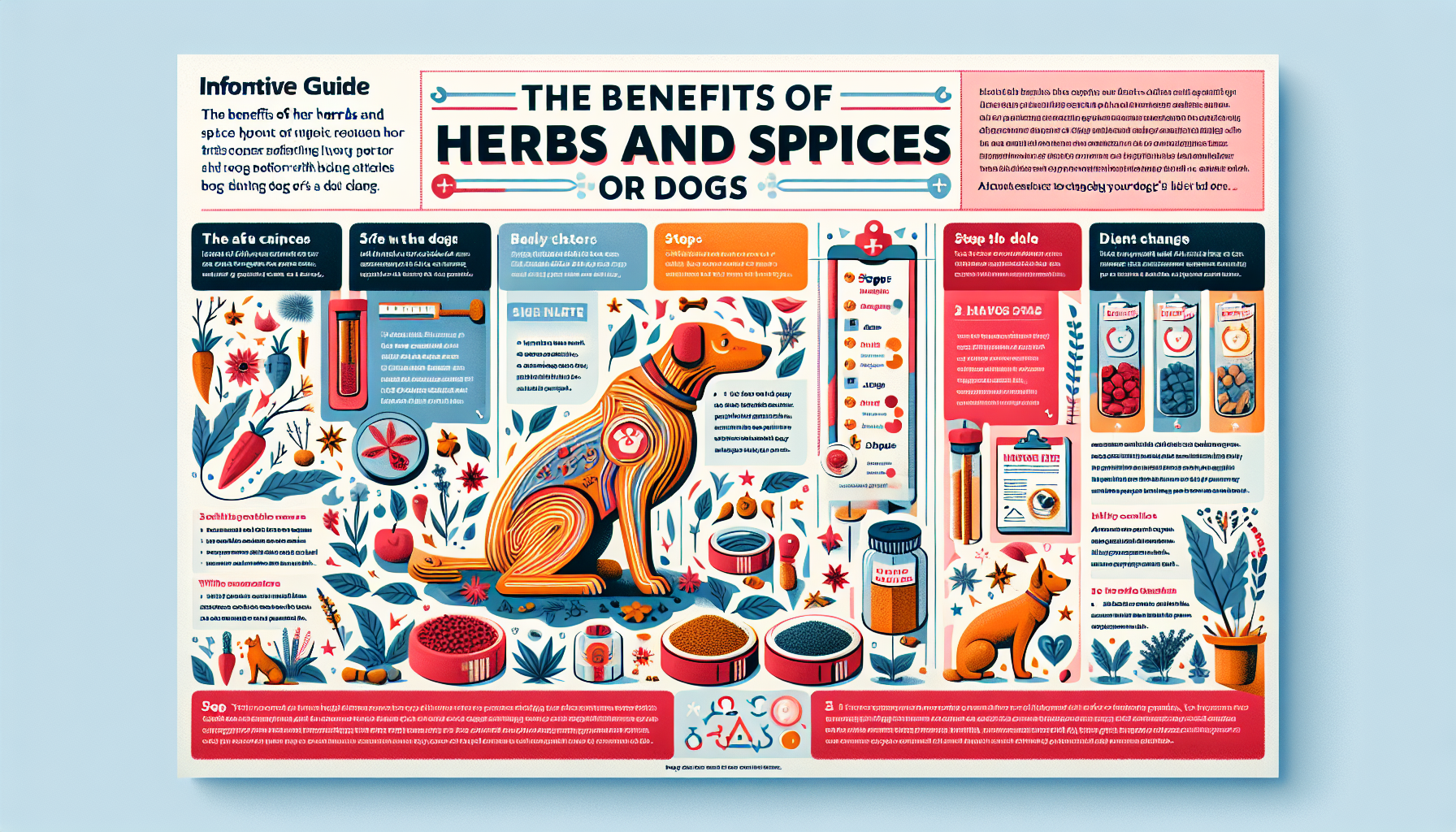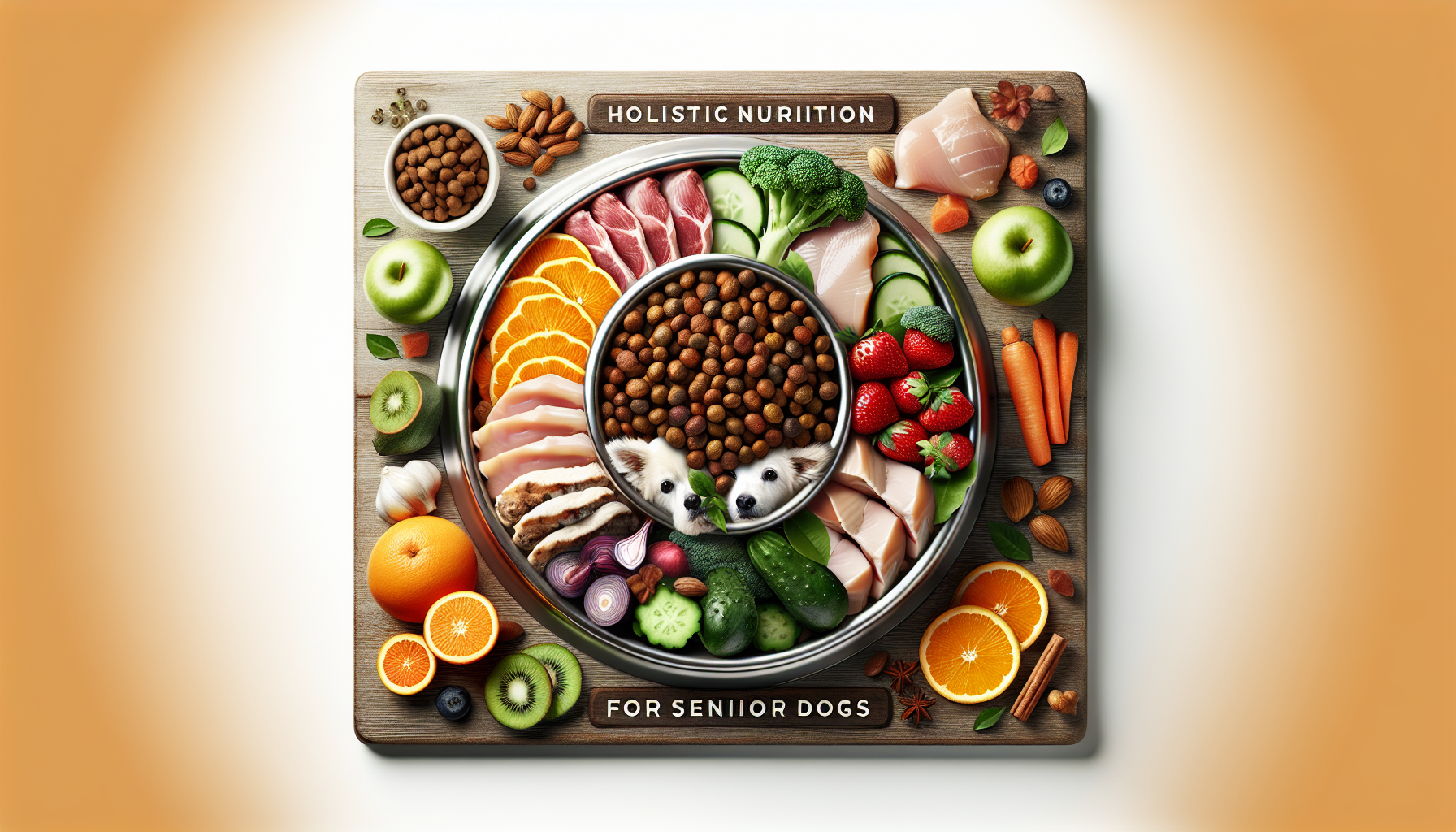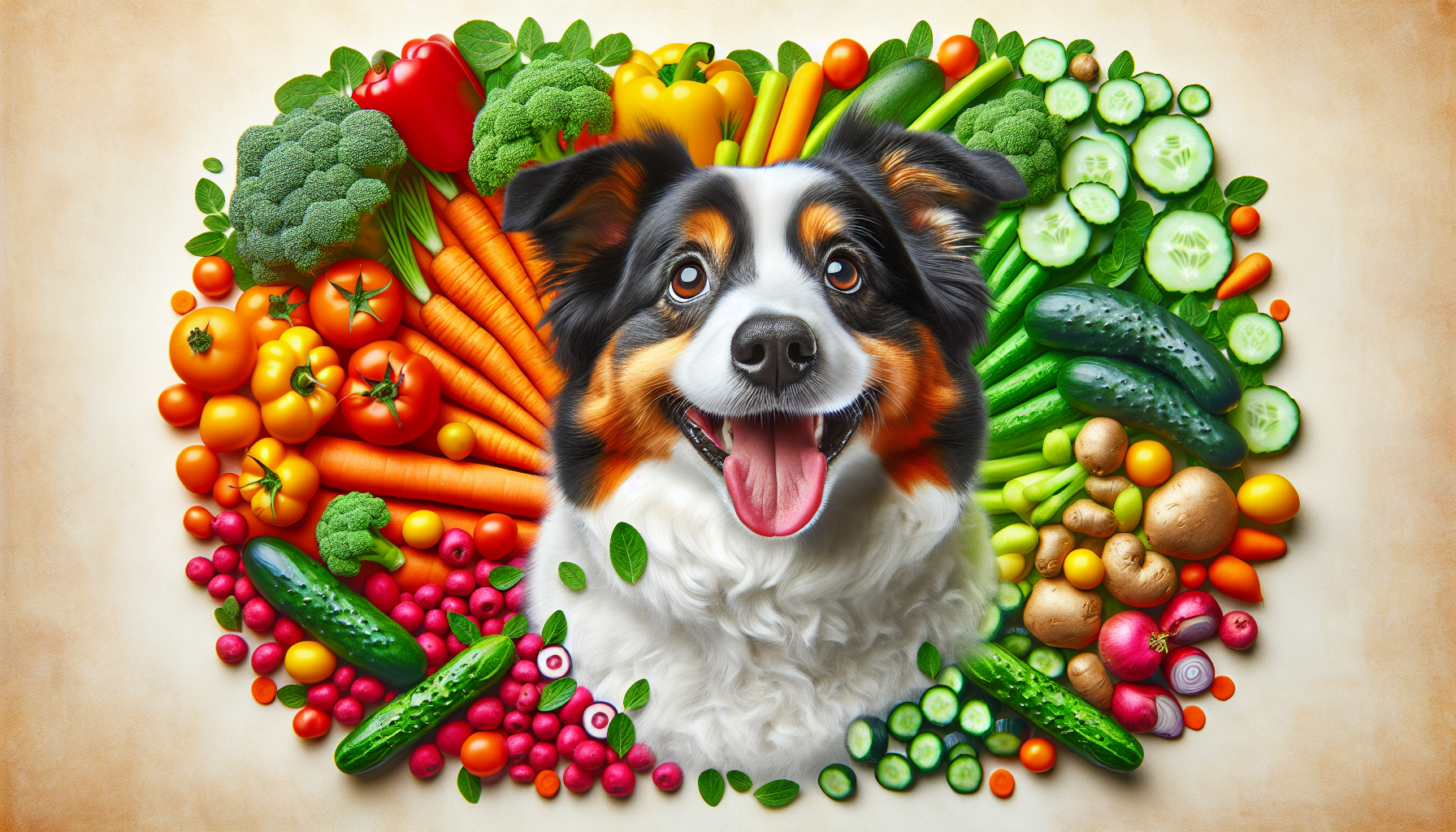Looking to keep your furry friend healthy and happy? Look no further! This article, titled “Protein-Rich Foods for a Healthy Dog Diet,” provides a wealth of information on safe and nutritious options for your dog’s diet. From vegetables and protein sources to grains, dairy, herbs, spices, and even nuts, we’ve got you covered. Your pup will be wagging their tail in excitement as they enjoy these delicious protein-packed meals. Say goodbye to bland dog food and say hello to a healthy, delicious diet for your four-legged companion!
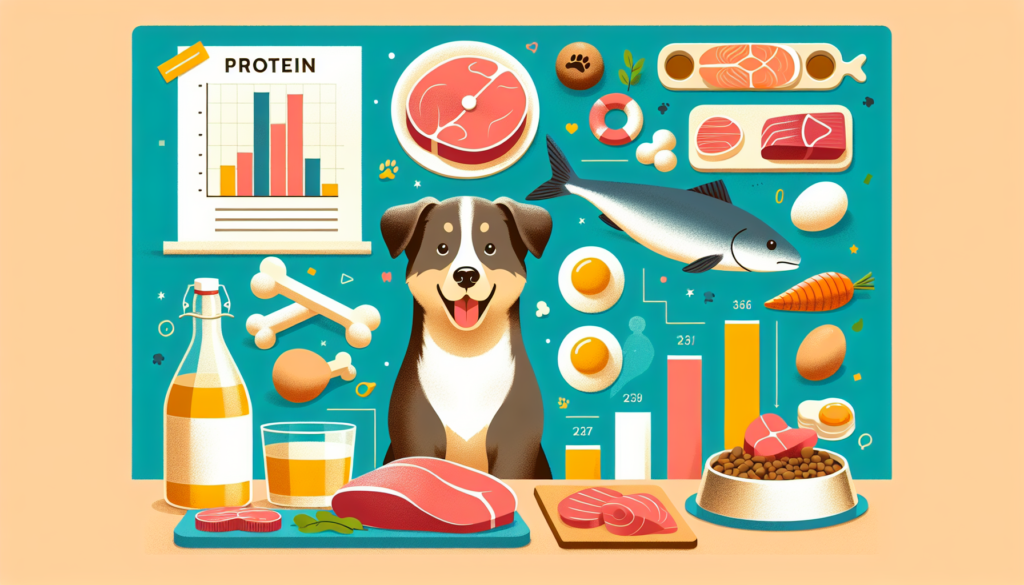
Protein-Rich Foods for a Healthy Dog Diet
Why is Protein Important for Dogs?
Protein is an essential nutrient for dogs as it plays a vital role in their overall health and well-being. It is responsible for building and repairing tissues, producing enzymes and hormones, supporting a strong immune system, and providing energy. Dogs have a higher protein requirement compared to other nutrients, making it crucial to ensure they receive an adequate amount in their diet.
Recommended Protein Levels for Dogs
The recommended protein levels for dogs vary depending on factors such as age, size, activity level, and overall health. However, as a general guideline, it is recommended that adult dogs receive a diet consisting of at least 18-25% protein, while puppies and lactating females require a higher protein content, typically between 22-32%. It is important to note that these percentages may vary based on individual dietary needs, so consulting with a veterinarian is always a good idea.
Sources of Protein for Dogs
There are numerous protein sources available for dogs, both meat-based and plant-based. Each source offers different benefits and nutritional profiles, so a combination of both is often recommended to provide a well-rounded diet. Here are some popular protein sources for dogs:
Meat-Based Protein Sources
Chicken
Chicken is a highly digestible and lean source of protein for dogs. It is low in fat and a good option for dogs with sensitive stomachs. Chicken can be prepared in various ways, such as boiled, grilled, or baked, and can be added to dogs’ meals or used as training treats.
Beef
Beef is another protein-rich option for dogs. It is packed with essential amino acids and vitamins. Lean cuts of beef, such as sirloin or ground beef, can be included in dogs’ diets. It is important to note that fatty cuts of beef should be avoided, as they can lead to weight gain and other health issues.
Turkey
Turkey is a lean source of protein and a popular choice for dogs. It is rich in nutrients and low in fat, making it a great option for dogs with dietary restrictions. Cooked and boneless turkey can be added to dogs’ meals or even used as a special treat on occasions like Thanksgiving.
Lamb
Lamb is a protein source that offers a unique flavor for dogs. It is nutrient-dense and provides essential amino acids. Lamb can be included in dogs’ diets through cooked and deboned cuts, ensuring that it is properly cooked to avoid any bacterial contamination.
Fish
Fish, such as salmon, is an excellent source of protein and omega-3 fatty acids, which are beneficial for dogs’ skin and coat health. It is important to ensure that the fish is cooked thoroughly and deboned to prevent any potential choking hazards. Fish can be added to dogs’ meals or used as an occasional treat.
Plant-Based Protein Sources
Soybeans
Soybeans are a plant-based protein source that can be included in dogs’ diets. They are rich in essential amino acids and provide various health benefits. Soybeans can be cooked and added to dogs’ meals or used as an ingredient in commercially available dog foods.
Quinoa
Quinoa is a gluten-free grain that offers a complete protein profile for dogs. It is packed with nutrients, including vitamins, minerals, and fiber. Cooked quinoa can be added to dogs’ meals as a source of protein and as a healthy alternative to grains like rice or wheat.
Lentils
Lentils are a legume that provides a good amount of protein for dogs. They are also high in fiber and low in fat, making them a nutritious addition to their diet. Lentils can be cooked and added to both homemade meals or used as an ingredient in commercially available dog foods.
Chickpeas
Chickpeas, also known as garbanzo beans, are a protein-rich and fiber-packed option for dogs. They offer essential nutrients and can be included in dogs’ diets through cooked and mashed chickpeas or as an ingredient in dog-friendly recipes.
Peas
Peas are a plant-based protein source that is easily digestible for dogs. They are also rich in vitamins and minerals, including vitamin A and vitamin K. Peas can be included in dogs’ diets through cooked and mashed peas or as an ingredient in commercially available dog foods.
Benefits of Mixing Protein Sources
Increased Nutrient Variety
By incorporating a variety of protein sources into your dog’s diet, you can ensure that they receive a wide range of essential nutrients. Each protein source offers a unique blend of amino acids and vitamins, contributing to optimal health and supporting their overall well-being.
Reduced Risk of Allergies
Feeding your dog a diverse range of protein sources can help reduce the risk of developing food allergies or sensitivities. Dogs can become allergic to specific proteins, and feeding them a rotational diet with different protein sources can help prevent the development of allergies or lessen the severity of any existing allergies.
Balanced Amino Acid Profile
Different protein sources have different amino acid profiles. By mixing protein sources, you can provide a balanced amino acid profile for your dog, ensuring that they receive all the essential amino acids they need for optimal health. Amino acids are the building blocks of proteins and play a crucial role in various bodily functions.
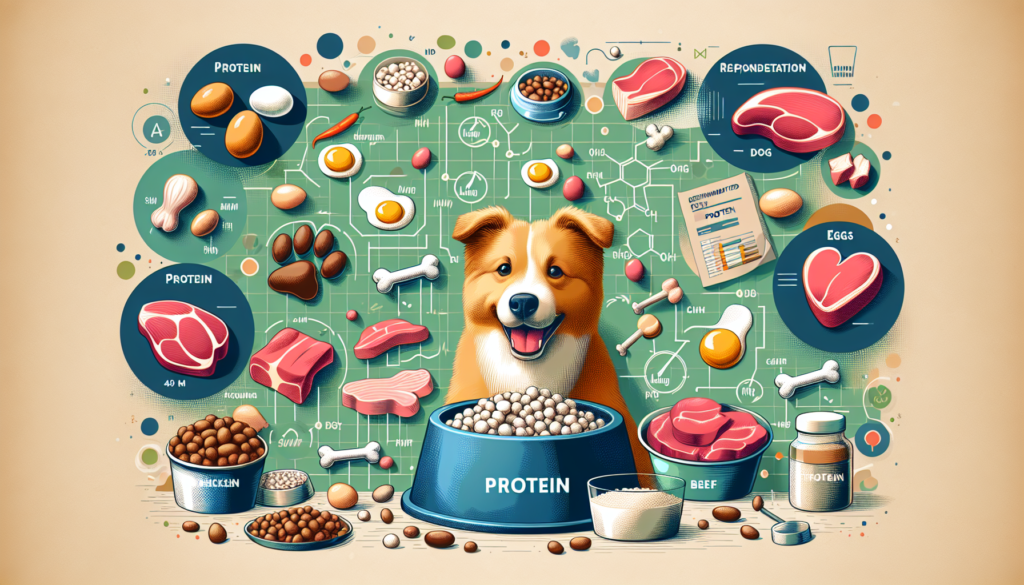
Choosing High-Quality Protein Sources
Read Ingredient Labels
When selecting protein sources for your dog, it is essential to read the ingredient labels carefully. Look for high-quality protein sources listed as the main ingredient. Avoid products that include fillers, artificial additives, or low-quality meat by-products.
Avoid Fillers and By-Products
Fillers and by-products are often used in low-quality pet foods. These ingredients may not provide the necessary nutritional value and can potentially cause digestive issues or allergies in some dogs. Opt for protein sources that are free from fillers and by-products for a healthier diet.
Consider Fresh and Raw Options
Fresh and raw protein sources can be excellent choices for dogs, as they retain more of their natural nutrients compared to heavily processed options. However, it is crucial to handle raw meat safely to prevent the risk of bacterial contamination. If opting for raw options, consult with a veterinarian to ensure a proper and balanced diet.
Cooking Meat for Dogs
Boiling
Boiling is one of the simplest and safest methods to cook meat for dogs. It helps remove excess fat and retains nutrients. Ensure the meat is fully cooked and free from any seasonings or spices that may be harmful to dogs.
Grilling
Grilling meat for dogs can add flavor and texture to their meals. Grilled meat should be thoroughly cooked to avoid any potential bacteria and should not contain any seasoning or marinades that may contain harmful ingredients like onions or garlic. Remove any bones before serving.
Baking
Baking meat can be an easy way to cook it for your dog. Ensure that the meat is cooked through and free from seasonings, breadcrumbs, or sauces that may contain harmful ingredients. Baked meat can be chopped or shredded before being added to your dog’s meals.
Avoid Seasonings and Spices
It is important to note that dogs should not consume seasonings and spices that are commonly used in human cooking. Ingredients like onions, garlic, salt, and certain herbs can be toxic to dogs. Always keep the meat plain and unseasoned, prioritizing their health and safety.
Safe Vegetables for Dogs
Carrots
Carrots are a nutritious and crunchy vegetable that can be enjoyed by dogs. They are low in calories and high in fiber, providing a healthy option for a snack or as an ingredient in homemade dog treats.
Sweet Potatoes
Sweet potatoes are an excellent source of vitamins, minerals, and fiber for dogs. They can be cooked and mashed or even sliced and baked as a nutritious and delicious addition to their meals.
Broccoli
Broccoli is packed with vitamins and minerals and can be a great addition to your dog’s diet. It is important to steam or lightly cook broccoli before serving it to dogs, as raw broccoli can be difficult to digest.
Green Beans
Green beans are low in calories and high in fiber, making them a great vegetable option for dogs. They can be cooked and served as a side dish or even used as a healthy alternative to traditional dog treats.
Pumpkin
Pumpkin is a fantastic source of fiber and can aid in digestion for dogs. It is important to use plain, unsweetened canned pumpkin or cooked fresh pumpkin. Avoid using pumpkin pie filling, which often contains added sugars and spices.
Grains and Carbohydrates for Dogs
Brown Rice
Brown rice is a nutritious grain that is commonly used in dog food. It provides energy and is easily digestible for dogs. Cooked brown rice can be added to their meals as a source of carbohydrates and fiber.
Oats
Oats are another healthy grain option for dogs. They are rich in fiber and provide essential nutrients. Cooked oats can be added to dogs’ meals or used as a base for homemade dog treats.
Quinoa
Quinoa is a gluten-free grain that offers numerous health benefits for dogs. It is packed with protein, fiber, and essential amino acids. Cooked quinoa can be included in dogs’ diets as a source of carbohydrates and plant-based protein.
Barley
Barley is a nutrient-dense grain that provides dogs with fiber, vitamins, and minerals. It can be cooked and added to their meals, providing a good source of energy and supporting digestive health.
Sweet Potatoes
Sweet potatoes, in addition to being a safe vegetable for dogs, can also serve as a carbohydrate source. They are rich in fiber and other essential nutrients, making them a healthy option to include in dogs’ diets.
Dairy and Dogs: What’s Safe?
Plain Yogurt
Plain yogurt can be a safe dairy option for dogs, as long as they are not lactose intolerant. Yogurt contains probiotics that can support good gut health in dogs. However, it is crucial to avoid flavored yogurt that may contain added sugars or artificial sweeteners.
Cheese
Cheese can be offered to dogs in small amounts as an occasional treat. It is important to choose low-fat or reduced-fat cheese options and to be mindful of lactose intolerance or sensitivities.
Cottage Cheese
Cottage cheese is a good source of protein for dogs and can be included in their diet, especially for those with sensitive stomachs. Choose plain, low-fat cottage cheese without any added ingredients.
Kefir
Kefir is a fermented dairy product that contains probiotics and can be beneficial for dogs’ digestive health. However, it is essential to introduce kefir gradually and monitor for any signs of intolerance or upset stomachs.
Goat’s Milk
Goat’s milk can be an alternative to cow’s milk for dogs. It is often easier to digest and may be suitable for dogs with allergies or sensitivities to cow’s milk. However, it is crucial to ensure that the goat’s milk is pasteurized and free from any additives.
Protein Sources Dogs Can Eat
Eggs
Eggs are an excellent source of protein for dogs and can be incorporated into their diet in various ways. They can be cooked and served alone or added to meals. It is important to cook eggs thoroughly to ensure they are safe for consumption.
Lean Beef
Lean beef, such as sirloin or ground beef, can be a valuable protein source for dogs. It is essential to choose lean cuts and to remove any excess fat. Cooked beef can be added to dogs’ meals or used as training treats.
Chicken Breast
Chicken breast is a lean and easily digestible source of protein for dogs. It is a common protein choice for many dog owners. Cooked and boneless chicken breast can be included in dogs’ meals or used as a special treat.
Salmon
Salmon is a fish that provides dogs with high-quality protein and essential omega-3 fatty acids. It can promote healthy skin and coat, as well as support joint health. It is important to fully cook salmon and remove any bones before serving.
Greek Yogurt
Greek yogurt can be a healthy and protein-rich option for dogs. It contains less lactose compared to regular yogurt and provides beneficial probiotics. Plain, unsweetened Greek yogurt can be added to dogs’ meals or used as a special treat.
In conclusion, protein is a vital component of a healthy dog diet. It is essential for their growth, development, and overall well-being. By incorporating a variety of protein sources, both meat-based and plant-based, you can provide a balanced and nutritious diet for your furry friend. Remember to choose high-quality protein sources, read ingredient labels, and consult with a veterinarian for any specific dietary requirements. With proper protein-rich foods, your dog can thrive and lead a happy, healthy life.

